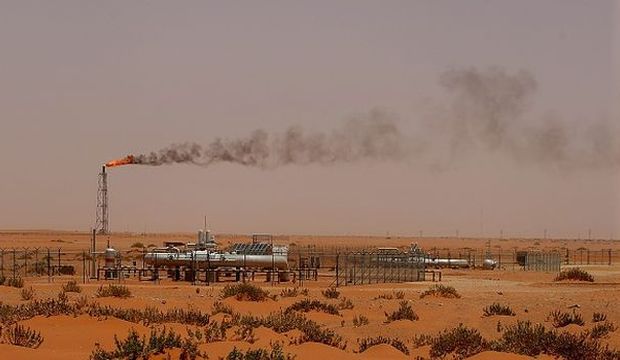A difficult financial phase is looming. Oil prices have fallen by more than half, and may continue to fall in future. However, this is not the first time Saudi Arabia has faced such a crisis: In 1986, oil prices dropped to 12 US dollars per barrel, but the Kingdom managed to endure the following difficult years.
In Saudi Arabia, we have known for decades that oil revenues will one day come to an end, and continue to seek to develop alternative sources of revenue. However, that looks inconceivable in the near future. Dependence on oil revenues has been rising with each successive government budget, and now we seem to be experiencing fatigue regarding the issue and have stopped thinking about addressing our petroleum addiction.
With high oil prices, managing resources was easy for the bureaucrats. The government’s task was to distribute the expected proceeds from oil and its derivatives to hospitals, education, commerce, imported livestock, and wheat. It paid subsidies for cement, iron, gasoline, soft drinks, textbooks, and even sports clubs. It also gave financial rewards to university students.
As long as there are oil buyers, bureaucrats do not need to overwork themselves; it is just an accounting issue. However, just like drug addicts, one day these doses will cease to give them the fix they need.
Spending on good education will engender productive men and women, and contribute to national resources. Unproductive graduates drain the country’s resources. Money is supposed to be invested in building viable industries after oil reserves eventually run out. However, the majority of industries get subsidized electricity, water, and fuel. They are all managed by cheap imported workforces, and the owners will close shop after government aid stops.
With low oil prices, the country will not be able to afford foreign workers. This is a positive result because the world’s wealthiest and most advanced countries do not possess slothful habits like ours.
However, the real challenge facing the government is bigger than that: it must find additional financial resources. That will require the government to appoint creative minds. It will also need good management that is able to create miracles, reduce costs, and explore additional resources. The country has a promising future as the banks are full of people and company funds. However, they do not know how to invest their money.
Regardless of the drop in oil revenues, we are optimistic about the government’s reserves and private financial resources. Nevertheless, this will be a tough mission to undertake. Without education reforms and orientation toward productive activities, 5 million students will become a burden on their families.
If we do not prompt changes in state institutions, optimize their services, and manage their growth, this elephant in the room—government bureaucracy—will remain tired and drained for a long time.
The drop in oil revenues is not as bad as it seems. We need a shock to the system to wake us up and help us see the world around us. We should anticipate this shock and use it to correct our course. This is the right time to do that.
